Tales of Groundwater, Issue 5
AMIIGA Project Newsletter - July 2019
Management plans for dealing with groundwater contamination
A common challenge of many cities in Europe is that natural resources are endangered due to soil and water pollution. Despite carried investigation and remediation measures over decades and current practices of environmental management, the soil and groundwater are still remaining polluted. In complex hydrogeological systems, where contaminated plumes are overlapping, technical and administrative activities have to be thoroughly planned and have to be run in a long term. Therefore a sustainable and realistic plan is necessary to be developed.
This “Management plan” consists of three basic elements: (i) description of flow and contaminant situation and related processes; (ii) definition of target values to be kept or achieved in the future and (iii) definition of necessary measures in soil and groundwater to achieve the targets. The Management plan is thus a program for sustainably improving the groundwater quality in the future. Its implementation is secured through early involvement of the responsible authorities and their contribution to the development of the management plan. For that purpose, key stakeholders (landowners, polluters, residents, consultants, etc.) are to be involved, as well.
Building on these requirements, the Management plans in the AMIIGA project are developed for seven pilot areas in six Central European countries. Diverse local conditions, such as hydrogeological situation, groundwater use, type of contamination, target values, goals, legal frameworks, responsibilities, are influencing the development of each Management plan. Despite those diversities, the Management plan has been proved an appropriate and flexible tool for planning, coordinating and implementing necessary measures for large-scale groundwater contamination.
Based on gained knowledge and experience from all seven Management plan developments, a shared Management strategy to deal with groundwater contamination is developed. The Management strategy is a guidance for setting up Management plans and initiation of its implementation. It comprises legal framework, elements of Management plan, procedure, definition of targets, involvement of stakeholders and examples of realization (good practices and obstacles with their ways of solution).
A Management plan is a valuable tool that gives authorities a good basis for the future work in protection of groundwater.
Read further about AMIIGA Management plans!
Impact of an “ecological bomb” on a groundwater body status
The extension of Jaworzno functional urban area (Poland) is equivalent to a groundwater body (No. 146) defined according to Water Framework Directive requirements. A major issue in this area is the “ecological bomb” Organika Azot, a former industrial area, heavily contaminated by wastes from pesticides production. Nevertheless, due to results of the operated monitoring program, this groundwater body has been assigned a good status. As a result of AMIIGA, the monitoring program is adapted to take in account this area and other contaminated sites. An official announcement of significant pressure is prepared.
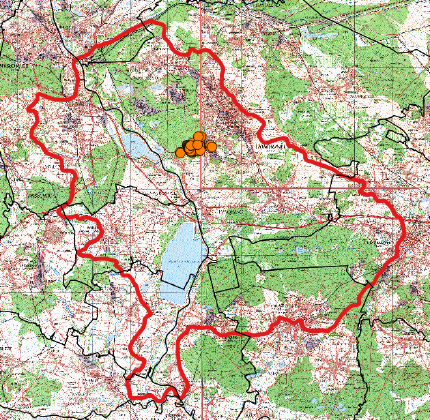
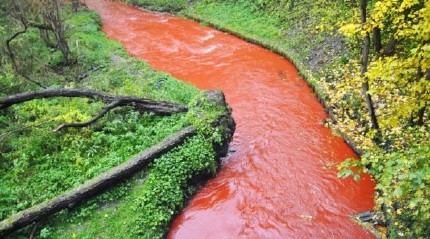
Read more about Jaworzno Management plan
Early warning system for protection of deep mineral water aquifer
A severe CHC contamination in Stuttgart-Feuerbach’s local shallow aquifers (Germany) threatens the mineral water aquifer that has regional relevance. The management plan based on conceptual and numerical modelling focuses on an early warning system to prevent depth transfer of contaminants and, at the same time, a reduction of the pollution in the shallow aquifer.
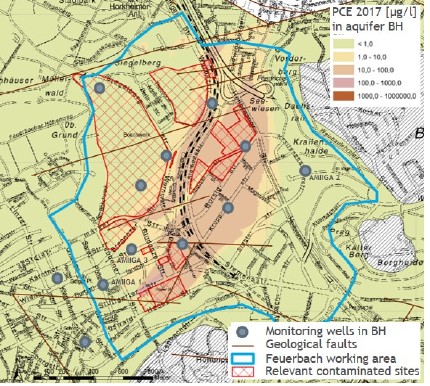
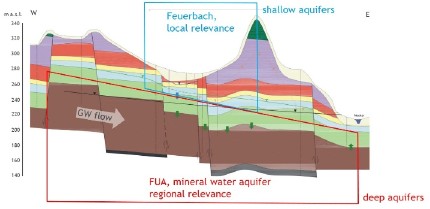
Read more about Stuttgart Management plan (UPDATED November 2019)
Tailored approaches for hot spot and plume remediation
The Management plan for the FUA Novy Bydzov (Czech Republic) defines specified measures for distinct areas according to their intensity of contamination. Specific quality targets and priorities of urgency are defined for each of these areas on base of a risk assessment procedure. For each area, a specific method of remediation and/or monitoring are defined.
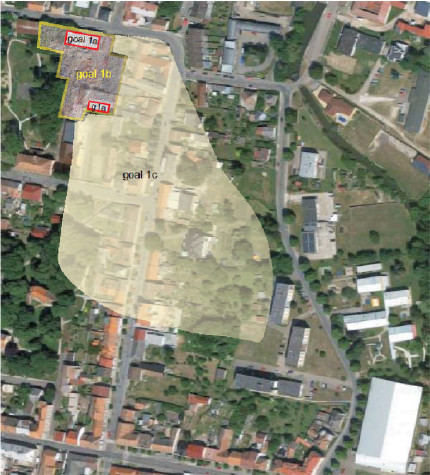
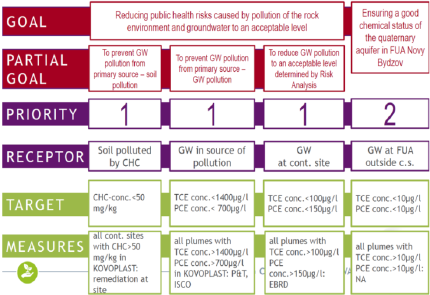
Read more about Novy Bydzov Management plan
Action plan for plumes and diffuse contamination
Milan region (Italy) is affected by a significant groundwater pollution due to an intense historic industrialization. In some areas a diffuse pollution occurs which cannot be attributed to specific sources. The National Law in Italy charges regions to regulate this kind of contamination.
Based on requirements of regional law, the Management plan defines specific measures and remediation targets for groundwater contamination due to plumes and diffuse pollution. It assigns roles and duties to the administrations for the management of these areas.
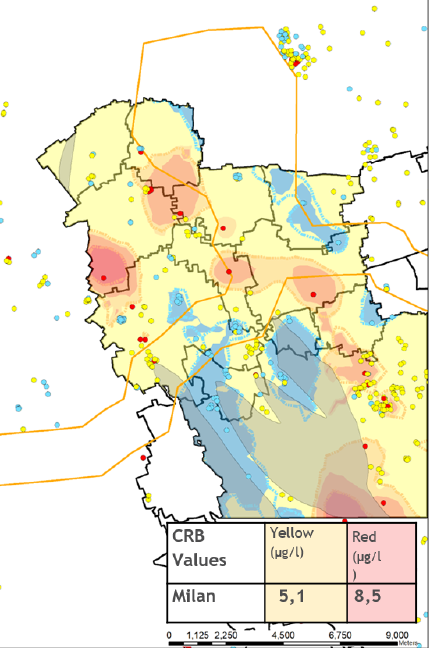
Read more about Milan Management plan
Risk analysis and MNA
The city of Parma (Italy), is covered by a diffuse [not codified by Italian laws] CHC contamination on a comparatively low level. Although there is no specific known pollution source, legal quality targets require action. Priorities will be defined on base of a risk analysis scheduled in the management plan. AMIIGA showed that NA is not possible due to bacterial low concentrations: monitoring the system is a needed long term action.
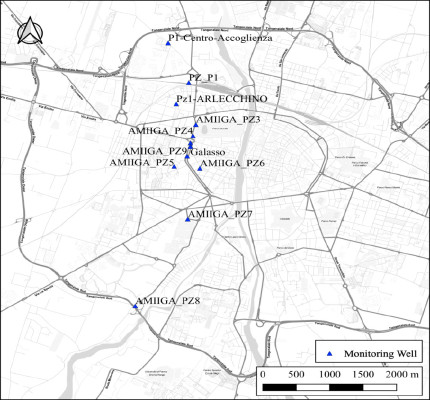
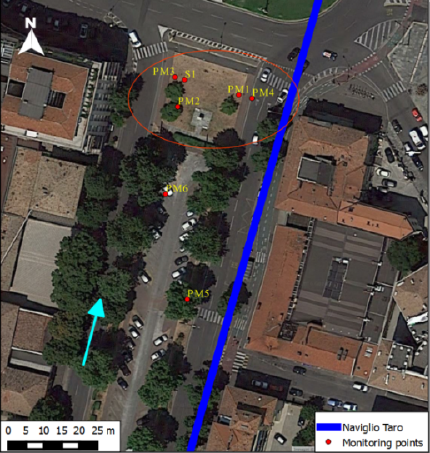
Read more about Parma Management plan (UPDATED October 2019)
Focus on critical areas threatening drinking water supply
Drinking water supply for the urban agglomeration of Ljubljana and Ig (Slovenia) is threatened by a contamination in four specific delineated areas, each of them different from geological and hydrogeological aspects and characterized by a specific kind of contamination. Based on a risk analysis priorities of action are defined and catalogue of measures established for each area, due to specific contaminant conditions and associated risks.
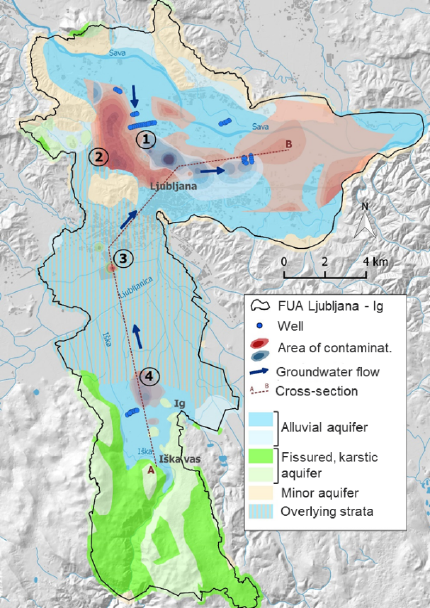
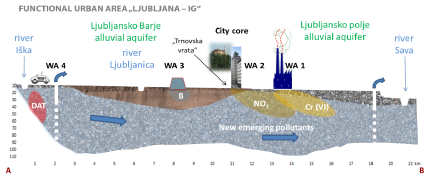
Read more about Ljubljana Management plan
Strategies for management of water intakes
Zadar’s drinking water supply (Croatia) is threatened mainly by a bacterial contamination due to household sewage. The pilot struggles with a lack of technical data, because there are only few piezometers in a huge area. The focus lies therefore on an improvement of conceptual understanding by planning and initiating further investigations and on a management of groundwater abstractions to avoid harmful influences.
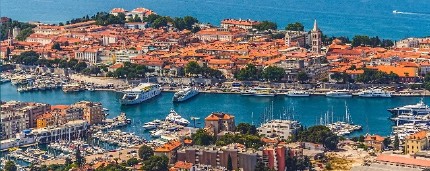
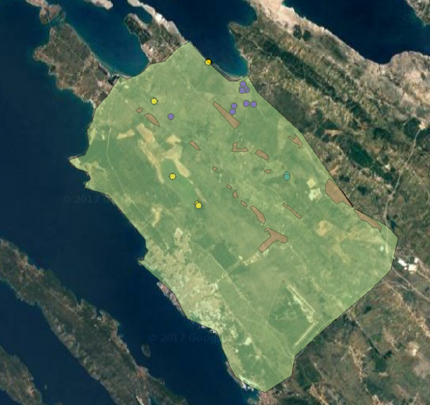
Read more about Zadar Management plan
Save the date:
AMIIGA Final Conference
After three years of an intensive work, we would like to present the results of the INTERREG Central Europe Project AMIIGA on 24. and 25. October 2019 in Jaworzno (Poland). We would be pleased to present you all about the applied tools, developed strategies, practical applications and gained experiences in seven pilot areas of Central Europe on 24. October 2019. A detailed insight into Jaworzno pilot action and their Management plan will be given on 25. October 2019. We will be glad to welcome you in Jaworzno.
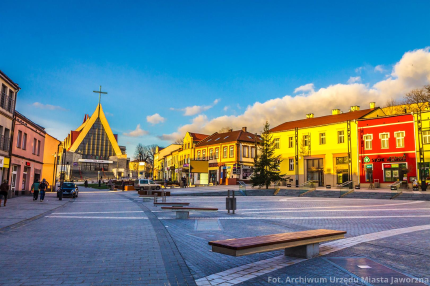
Therefore, we cordially invite you to the conference and looking forward to exchanging the experience with you.
For more information and registration:
- ggzyl@gig.katowice.pl
- amiiga@um.jaworzno.pl
- euprojects2@comune.parma.it
